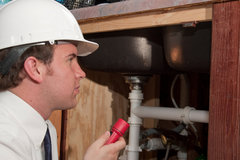In case you missed it see what’s in this section
Let's Talk

How To Deal With A Pest Infestation In A Rental Property
A pest infestation is never welcome, but what do you do if it happens in a property that you are renting?
The landlord won’t be very happy to discover that he/she has unwanted tenants, but is it his/her responsibility to evict them or yours? If you lived in a house that you owned, then of course you would deal with it but living in a property you don’t own can cause confusion when it comes to who should deal with issues when they arise.
If it is down to the landlord, what do you do if they refuse to get involved or if it isn’t their problem to resolve? It may be their property, but you have to live there and if they can’t or won’t deal with it, you will continue to suffer with the infestation, not them.
So, firstly, when should the Landlord be sorting out the problem for you?
It is the landlord’s responsibility to deal with the pest infestation if it is caused by conditions in your rented home.
If you are about to move into a furnished rented property or have recently moved into one, and discover that there is already an issue with rats, mice or other pests, then this is also the responsibility of the landlord. Furnished private rental properties must be fit to live in at the start of the tenancy.
At any time, you should check your tenancy agreement carefully – if it says that the landlord must make sure your home is fit to live in or in a good condition, then it is their responsibility to deal with the issue.
It is the landlord’s duty to fix holes in the wall or floor, which allows pests and vermin to enter your house – it is also their responsibility to repair damage that pests may have caused to your home. This includes fixing any damage to electrical wiring and any pipes, boards and so on that have been chewed through.
If the problem with pests in your home could cause a health hazard then you can complain to environmental health at your local council.
When should you be sorting the issue out yourself?
It is down to you to sort the issue out if it was caused by you. For example, if you didn’t clear away rubbish or leftover food, which pests were then attracted to.
What next?
If the issue sits with your landlord, then you need to contact them as soon as possible – a small issue will only get bigger the longer you leave it. You should do this is writing (even if you follow it up with a phone call) so if it comes to it, you have proof that you informed the landlord of the problem.
You must then allow your landlord and their contractors reasonable access to your home so that they can assess what needs repairing and carry out the work.
If it is down to you to sort out the problem because you caused the issue then you can either contact your local council to find out if they provide pest control services (for which you may be charged a fee), hire a pest controller or deal with the issue yourself. If you opt for the latter, than research the best way to do this first - take a look at these humane mouse traps, for example. A live trap, which is easy to set and bait, can catch around 30 mice at once. These also mean that you don’t ever have to see or touch them and you can get rid of them without having to kill them.
Weather in Swindon
Listings


















